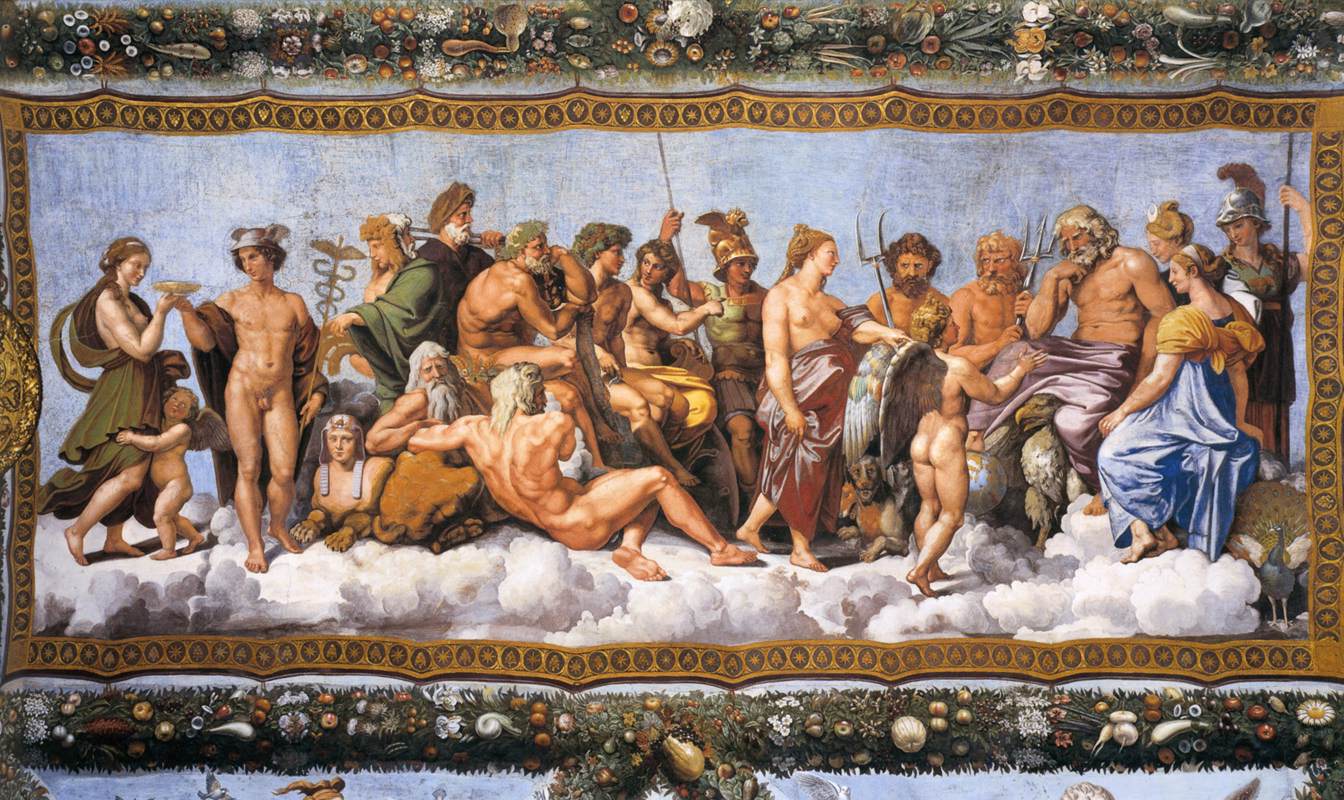In my corner of the internet there is some discussion (and some insulting, some deliberately not listening, and some jumping to conclusions) about monism and polytheism. Here are my two cents.

Monism is the idea that there is one unifying source. It is NOT the same as monotheism. Monotheism is the idea that there is one god and one god only. Almost all monotheists are monists, but not all monists are monotheists. Can polytheists be monists? Yes, yes they can. How important are such labels? Not very (most of the time). Using my own experience I want to talk about these two things: what being a monist polytheist means to me and how important the current arguments are to me and in general.
These days I identity as a polytheist, a monist, a non-dualist, and a bit of an animist. These are imperfect labels to try to succinctly communicate my ideas, experiences and practices to others. But there is no One Polytheism or One Way to be an Animist. Your mileage may vary, even if we both are hewing to a fairly similar interpretation of these terms.
After years of practicing a rather liberal, mystic Christianity I was hesitant to call myself a polytheist. But after a few experiences I could not disregard or write off, where different gods showed up in my life (not as in, a general idea of a particular god; more like a specific god walked in through my front door and around my living room and then left) I embraced the term polytheist. It was incredibly freeing to take on this word and its view point: that there is no singular god, that your mileage may vary and that is OK!
But I’m also a monist of sorts because that ALSO is my experience. Mystic traditions almost always talk about One-ness. Let us not arrogantly assume that this One-ness is the same to all people, in all times and places. I do think it speaks to a kind of spiritual truth or shared experience, but what exactly is this One-ness? Ask 5 different mystics and you’ll likely get 4.5 different answers.
In my 20 years or so of trying to be a Christian I often felt what I thought of as God, but never had the Personal Relationship with Jesus Christ that I was supposed to be having. Jesus never showed up for me. Looking back, I now wonder that if I’d had more of a polytheist vocabulary that the ‘God’ I was experiencing might have been Land spirits. But I did experience a transcendent yet immanent Other – and this Other was beautiful but non-personal.
I still feel that vast, non-personal Other. I can make sense of this Other in a variety of philosophical and theological ways. It is not the standard Christian understanding of God. The closest I can come is perhaps the Star Goddess of the Faery tradition, the Source from which all emerges and to whom all things return. But S/he is not personal. I would never pray to her for comfort. So many other gods are active and involved in lives and the world – why not go to the gods and spirits that are interested in human doings? It would be a bit like one microbe in my lower intestine trying to get my attention. (Totally flawed comparison, I KNOW.)
The gods are distinct. This I have experienced. I’ve also experienced a bit of the mystic One-ness of things. These days I’m listening to others’ experiences, thinking about them, but trusting my own experience. And so should you. If you haven’t experienced anything of a One-ness, then don’t call yourself a monist. And certainly don’t go around saying monism isn’t a thing. Or that your version of monism is The Right One. If we’re having an academic discussion about what a specific theologian said in his context for his audience (and it’s almost always a he) then that’s one thing. But people experience the gods and the world in so many unique ways. This is not to say that all terms are subjective and meaningless. Not at all. Monism means what it means – but we experience that and fold it into our personal theologies differently. Monism and monist tendencies do not mean and should not mean a ‘flattening’ of experience or a universal experience. (Julian Betkowski’s recent post explains that so much better than I can.)
Theoretically I think there is an underlying Oneness to the world. But I set that to the side and I work with what I’ve experienced, which are the gods, in a very polytheistic way.
Are these labels important? Oh, yes and no. Yes, because words help us communicate with others. If someone asks what my religion is, I can say Pagan (a HUGE umbrella term that does not fit exactly right, but says enough for a cursory conversation). If someone wants to know more I can say I practice an American form of Traditional Witchcraft with Hindu devotions. More labels that can mean various things. If they still want to know more I can say Faery/Feri witchcraft, which is STILL a label that needs explaining. And so we can continue to break down terms. I find it fascinating to discuss identities and practices in specific details. Then again, I spent many years formally studying theology. As a wide umbrella Pagan community I think it’s great that people are parsing these words.
But in the end, no, these labels aren’t what is most important. What’s most important to me is your experience. I do not expect some one who has never experienced Kali to have devotions to her. Just as I never experienced Jesus and hope no one expects me to worship him. I don’t want people taking on definitions of terms just because some educated dude said that’s what polytheists experience, or that’s what Pagans of X flavor do.
Part of what makes polytheism so delightful is that allows for a lot of personal and varying experiences. And the same goes for monism.
Your mileage may vary.











